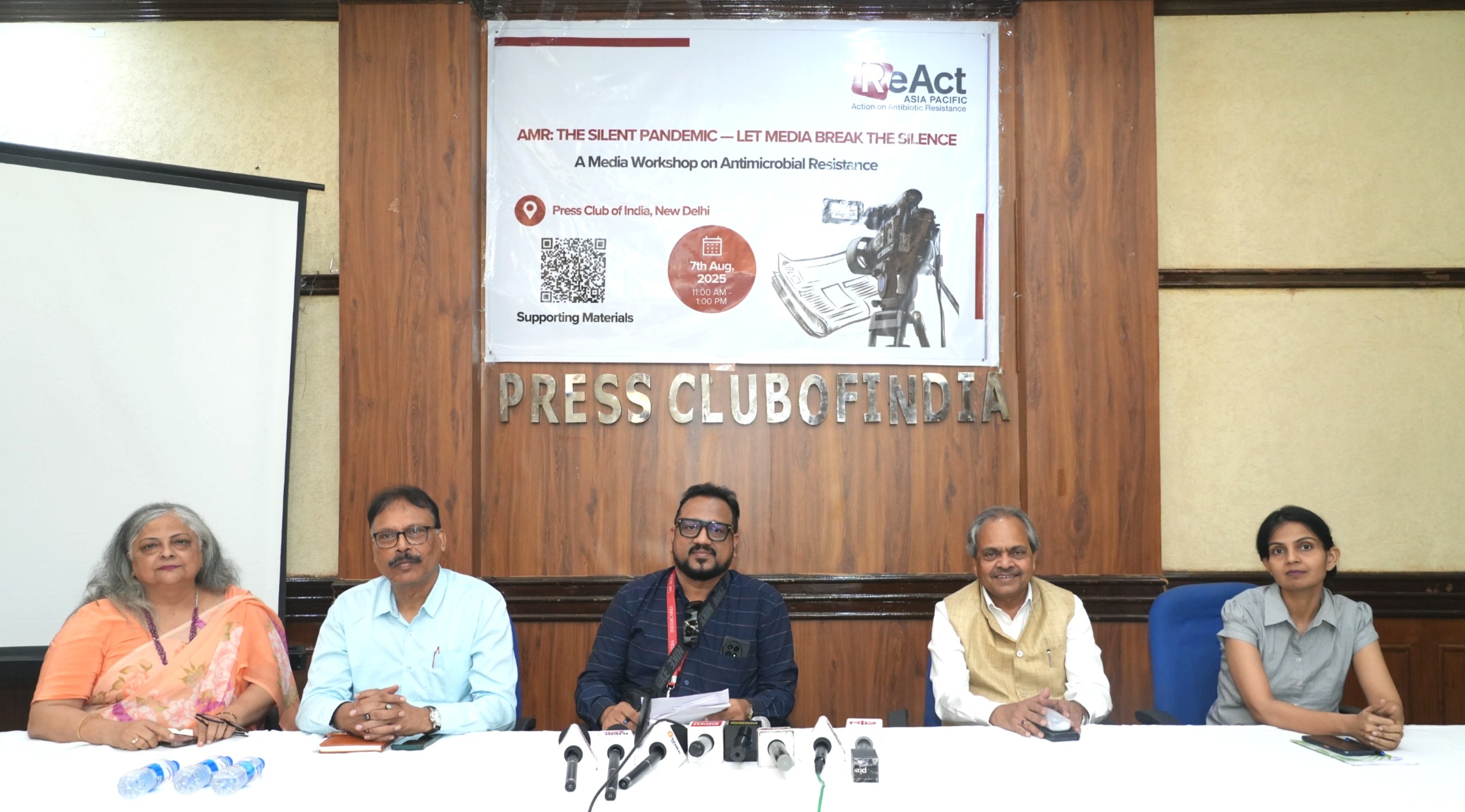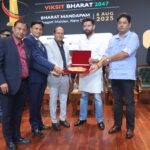Experts Emphasize the Media’s Critical Role in Addressing the “Silent Pandemic” of AMR
New Delhi, A national media workshop titled “AMR: The Silent Pandemic – Let Media Break the Silence” was held today at the Press Club of India, New Delhi. Organized by ReAct Asia Pacific, the event aimed to empower journalists to report more effectively on antimicrobial resistance (AMR) — a rapidly growing public health threat often overlooked in mainstream discourse.
Understanding AMR: A Global Health Emergency
Antimicrobial resistance is emerging as one of the most severe threats to global health. According to 2021 data, bacterial AMR was linked to 4.71 million deaths worldwide, with 1.14 million of those directly caused by resistant infections. If current trends continue, AMR could lead to 39 million deaths by 2050, claiming one life every 20 seconds.
Bridging Science and Journalism Through One Health Approach
The workshop focused on equipping media professionals with accurate scientific information, cross-sector perspectives, and practical reporting tools grounded in the One Health framework — which connects human, animal, and environmental health to address AMR holistically.
Dr. S. S. Lal, Director of ReAct Asia Pacific, opened the event by highlighting the urgent need to raise public awareness and hold systems accountable. He called on journalists to help drive responsible antibiotic use and systemic change.
Stories of Survival and Loss: The Human Cost of AMR
One of the workshop’s most compelling segments featured personal stories of those affected by AMR. Moderated by Dr. Narinder Saini, Chairman of the AMR Standing Committee at the Indian Medical Association, this session included testimonies from Bhakti Chauhan and Pooja Mishra, who highlighted the disproportionate impact of AMR on vulnerable populations.
Dr. Saini reiterated the collective responsibility to “Stop Infection, Fight AMR,” encouraging the media to act as urgent messengers of change.
Interconnected Challenges: Panel Calls for Unified Action
A cross-sectoral panel on the One Health approach, led by Dr. Sam Prasad (AHF Indiacares), brought together notable experts:
-
Dr. Sangeeta Sharma – Delhi Society for Promotion of Rational Use of Drugs
-
Dr. Chanchal Bhattacharya – Heifer International
-
Rajeshwari Sinha – Centre for Science and Environment
-
Satish Sinha – Toxics Link
Panelists stressed the deep interdependence of health systems, food production, and environmental practices in combating AMR.
Strengthening Health Systems: Diagnostics and Prevention Are Key
Another session spotlighted the importance of diagnostics and infection prevention. Dr. Sarabjit Singh Chadha (FIND) and Dr. Tikesh Bisen (PATH) explained how timely diagnosis and proper infection control can curb the spread of resistant microbes.
Tools for Responsible Science Reporting
Dr. Salman Khan from ReAct Africa guided participants on finding credible sources in science journalism. Later, Shobha Shukla of the Global AMR Media Alliance shared data on current media trends and outlined the common hurdles in reporting AMR-related stories in India.
India Chapter of AMR Media Alliance Launched
A major milestone of the event was the launch of the India Chapter of the AMR Media Alliance, announced by Bobby Ramakant, who also facilitated the concluding discussion. The event closed with a clear call to action — the media must lead the narrative in tackling AMR and amplify solutions that protect public health.
Key Takeaways for the Public: Responsible Antibiotic Use Matters
-
Use antibiotics only when necessary. Misuse leads to resistant infections that are harder and costlier to treat.
-
Not all infections require antibiotics. Viral illnesses like colds and flu do not respond to them.
-
Follow prescriptions strictly. Always complete the prescribed course; never skip doses or self-medicate.
-
Diagnostics can save lives. Testing helps determine if antibiotics are needed and which ones will work.
-
Hygiene is your first defense. Handwashing, clean water, sanitation, and vaccines reduce infection risk.
-
AMR is a community issue. Drug-resistant infections are found not just in hospitals but also in food, animals, and the environment.
-
Ask questions. Patients should feel empowered to ask doctors: “Is this antibiotic really necessary?”
-
Antibiotics are a shared resource. Preserving their effectiveness ensures protection for future generations.





